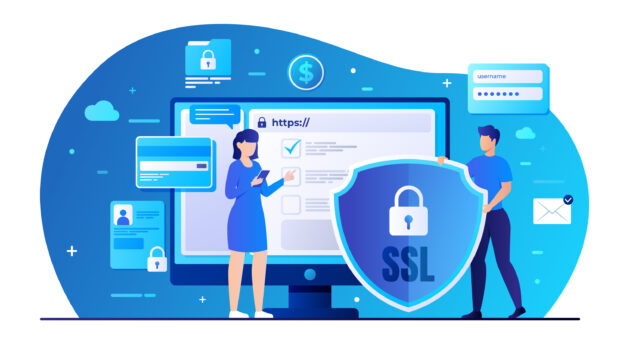PIPEDA Compliance 101: What You Need to Know About Privacy Laws
In an increasingly digital world, the protection of personal information has become paramount. To ensure the privacy and security of individuals’ data, governments worldwide have implemented strict privacy laws and regulations. In Canada, the Personal Information Protection and Electronic Documents Act (PIPEDA) serves as the cornerstone of privacy legislation, governing how private-sector organizations collect, use, and disclose personal information. In this article, we’ll provide an essential guide to PIPEDA compliance, covering what you need to know about these critical privacy laws.
The Basics of PIPEDA
What is PIPEDA? PIPEDA, which stands for the Personal Information Protection and Electronic Documents Act, is a federal privacy law in Canada. It came into effect on January 1, 2001, and was designed to regulate how private-sector organizations handle personal information during commercial activities. PIPEDA aims to strike a balance between individuals’ right to privacy and businesses’ need to collect, use, and disclose personal information for legitimate purposes.
Key Components of PIPEDA:
- Consent: Consent is a fundamental principle of PIPEDA. It means that individuals must be informed of how their personal information will be used and provide their consent before it is collected, used, or disclosed.
- Collection Limitation: Organizations must limit the collection of personal information to what is necessary for the purposes identified. They should avoid collecting information that is not directly related to their business activities.
- Use and Disclosure Limitation: Personal information should only be used or disclosed for the purposes for which it was collected. Organizations must obtain additional consent if they want to use the information for other purposes.
- Data Accuracy: Organizations are required to make reasonable efforts to ensure that personal information is accurate, complete, and up to date.
- Security Safeguards: Organizations must protect personal information with security safeguards appropriate to the sensitivity of the data. This includes physical, organizational, and technological measures to ensure data security.
- Openness: Organizations must be transparent about their privacy policies and practices. They should make information readily available to individuals.
- Individual Access: Individuals have the right to access their personal information held by an organization and challenge its accuracy.
- Challenging Compliance: Organizations must have a process in place for handling privacy-related complaints from individuals. This includes providing a mechanism for escalating complaints to the Privacy Commissioner of Canada.
Who Needs to Comply with PIPEDA?
PIPEDA applies to private-sector organizations that collect, use, or disclose personal information during commercial activities in Canada. This includes a wide range of businesses, from small enterprises to large corporations. Non-profit organizations and federal works and undertakings, such as banks, airlines, and telecommunications companies, are also subject to PIPEDA.
Steps to Ensure PIPEDA Compliance
Ensuring compliance with PIPEDA is crucial for your business. Here are the steps to get started:
1. Understand PIPEDA
Start by gaining a deep understanding of PIPEDA’s principles and how they apply to your organization. You can access detailed information and resources on the official website of the Office of the Privacy Commissioner of Canada.
2. Appoint a Privacy Officer
Designate an individual or a team responsible for privacy compliance within your organization. This privacy officer will oversee PIPEDA compliance, manage privacy complaints, and ensure ongoing training and awareness.
3. Conduct a Privacy Impact Assessment (PIA)
A Privacy Impact Assessment (PIA) helps you identify the personal information your organization collects, how it is used, and potential privacy risks. It’s a crucial step in aligning your practices with PIPEDA principles.
4. Develop a Privacy Policy
Create a clear and comprehensive privacy policy that explains to individuals how their personal information will be collected, used, and protected. Ensure that your policy is easily accessible to your customers and employees.
5. Obtain Consent
Before collecting personal information, obtain informed consent from individuals. Consent should be specific, and individuals should understand the purposes for which their information will be used.
6. Limit Collection and Use
Collect and use personal information only for the purposes that are necessary and clearly stated. Avoid collecting more data than needed, and ensure that your data handling practices align with PIPEDA principles.
7. Protect Data with Safeguards
Implement security measures to protect personal information from unauthorized access, disclosure, or misuse. The level of security should be appropriate to the sensitivity of the data.
8. Respond to Access Requests
Be prepared to respond to individuals who request access to their personal information held by your organization. Have procedures in place to handle these requests efficiently.
9. Develop a Complaint Handling Process
Establish a process for addressing privacy-related complaints from customers or employees. This process should be well-documented and communicated to individuals.
10. Educate Your Team
Train your employees on the importance of privacy and PIPEDA compliance. Ensure that your team understands their role in protecting personal information and how to respond to privacy concerns or breaches.
Conclusion
PIPEDA compliance is not just about adhering to legal requirements; it’s a commitment to respecting the privacy of your customers and employees. By understanding the key principles of PIPEDA and implementing the steps outlined in this guide, you can ensure that your business respects privacy and remains compliant with Canadian privacy laws. Privacy is a fundamental right, and your commitment to protecting personal information fosters trust and confidence among those whose data you handle.
Cover Image by Freepik
















